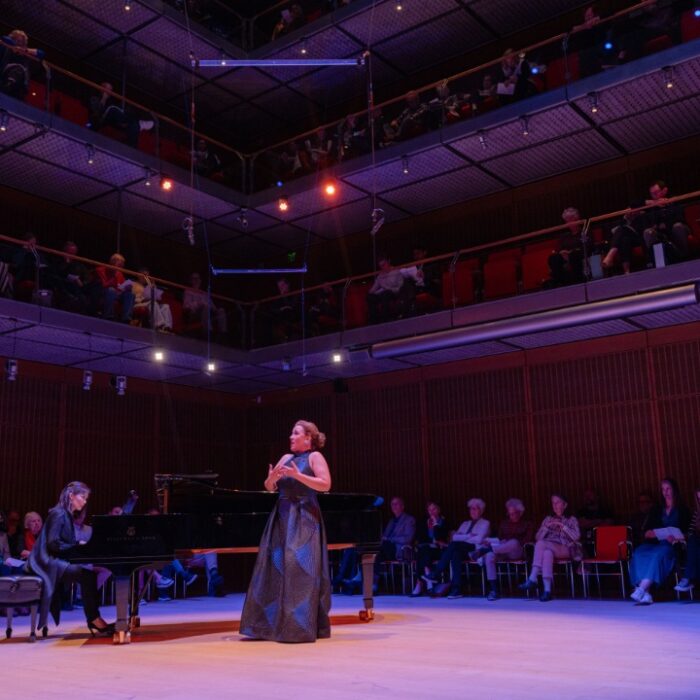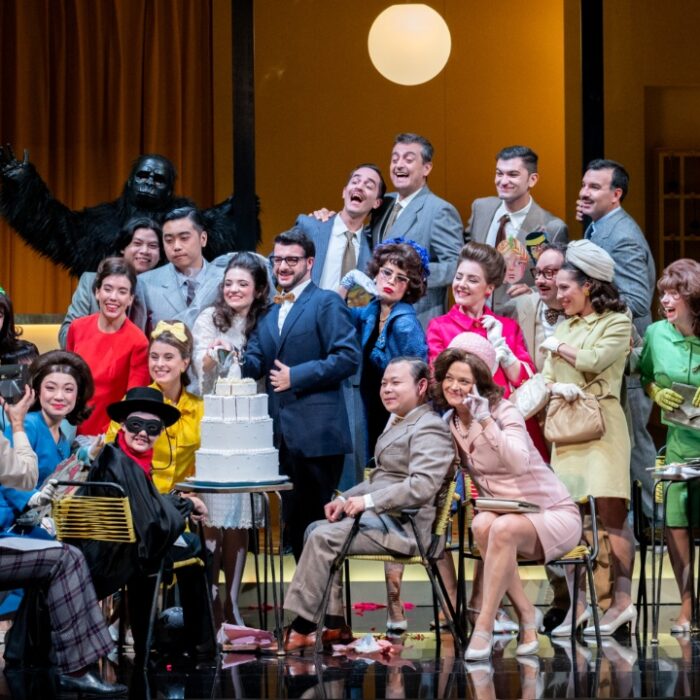
Teatro alla Scala 2024-25 Review: Norma
Latvian Soprano Marina Rebeka Delivers a Stunning, Near-Perfect Portrayal of Norma
By Bernardo Gaitan(Photo: Brescia e Amisano)
It is rather curious that one of the most emblematic titles in the operatic canon has been staged so rarely on such an iconic stage as Teatro alla Scala: “Norma” by Vincenzo Bellini, which had its world premiere there in 1831 with Giuditta Pasta in the title role. That said, the few times it has returned have certainly not gone unnoticed. It became a signature role for Maria Callas, who performed it at La Scala between 1952 and 1955, followed by Leyla Gencer in 1965 and Montserrat Caballé in 1977. Since then, the work had been absent from the Milanese stage.
As a side note, on October 20th 2020, Marina Rebeka gave a solo recital at the theatre. At the end, after a long ovation, she dared to say, in flawless Italian, almost invoking destiny: “My dream has always been to sing this piece on this stage.” At that moment, Giulio Zappa, the pianist accompanying her in that intimate recital, began to play the sublime introduction to “Casta Diva.” It would take five more years for the international Latvian diva’s dream to come true: singing opera’s most iconic priestess on the very stage of her dreams.
The return of this Bellinian masterpiece after nearly half a century came with mixed feelings. On one hand, the music was superb; on the other, Olivier Py’s stage direction fell flat. The regista set the action not in Roman-occupied Gaul, as Felice Romani’s libretto specifies, but during the Risorgimento–the period between 1815 and 1871 when Italy achieved national unity. However, several scenes revealed a lack of coherence: to reference the myth of Medea, a 1920s Berlin cabaret dressing room with electric spotlights appeared (in a period with no electricity); at another point, an ancient Roman-style pyre emerged, followed by minimalist stairs unrelated to 19th-century architecture, eventually joined by natural elements like a giant tree and a moon. Py’s vision lacked logic, though it was not entirely unpleasant. It offered nothing new, but thankfully did not offend either. It simply… existed.

(Photo: Brescia e Amisano)
Costumes by Pierre-André Weitz remained consistent with Risorgimento aesthetics, especially for the soloists and chorus, except for some half-naked dancers, awkwardly out of place, performing a dispensable theatre-themed choreography by Ivo Bauchiero. Still, Py delivered some striking visuals: Norma’s entrance from the top of the staircase was goosebump-inducing, and the opera’s final scene, when Norma confesses to Pollione, was emotionally devastating in its intensity.
Musically, however, the production soared. Fabio Luisi’s conducting captured the emotional complexity of the score, masterfully alternating moments of dramatic pathos with bursts of lyrical expressiveness. His interpretation stood out for its flexible pacing, perfectly attuned to the music’s dynamism and drama. The Italian maestro, an expert in bel canto repertoire, wisely used Roger Parker’s critical edition, offering a complete and faithful version. From the opening Sinfonia, he established a tone of tragic solemnity, unleashing a wide spectrum of emotions from melancholy to martial fury. Meanwhile, La Scala’s chorus, under Alberto Malazzi, shone with expressive power and precision.
The undisputed star of the evening was Marina Rebeka, who delivered a stunning, near-perfect portrayal of Norma. Her elegant voice, with its rich timbre and flawless technical control, shone brightest in emotionally charged moments thanks to her fluid phrasing, filature and mezza voce, not to mention her resonant and secure high notes. Her Norma was deeply compelling, not just as a priestess, but as a believable mother. Her rendition of “Qual cor tradisti, qual cor perdesti” was profoundly moving, eliciting tears for its emotional and vocal excellence. The audience rewarded her with thunderous applause, hailing both her technical mastery and her emotional depth, confirming her as a leading interpreter in Bellini’s repertoire. After a reverent and impeccably sung “Casta diva che inargenti,” the gallery erupted with shouts of “Brava!” and even calls for an encore.

(Photo: Brescia e Amisano)
A welcome surprise came from Vasilisa Berzhanskaya as Adalgisa, who earned unanimous acclaim for her extraordinary voice and remarkable interpretive intelligence. Her Adalgisa was marked by a beautiful timbre and emotionally invested phrasing. Together with Rebeka, and with an innate understanding of bel canto style, they formed the dramatic core of the opera, meeting all its technical and stylistic demands. The duet “Sola, furtiva al tempio” was an absolute delight. The mezzo-soprano captured the emotional nuances of a character torn between her priestly vows and her love for Norma, delivering a truly evocative performance.
Freddie De Tommaso, as Pollione, brought a voice with an impressive high register but ultimately fell short due to a lack of stylistic refinement and Italianate phrasing–ironically, given his Italian roots. Despite a generous voice, his timbre didn’t quite suit the bel canto texture. In the first act, his Pollione felt clumsy, vocally aggressive, and lacking elegance in phrasing, which made it difficult to connect with the character. Evidence of this came in the form of boos from the loggione after his aria “Meco all’altar di Venere.” His performance improved notably in the second act, particularly in the final judgment and death scene.

(Photo: Brescia e Amisano)
Michele Pertusi as Oroveso brought experience to the role, though his voice was not in top form nor as commanding as required for the part. Still, he remains a benchmark bass in the bel canto repertoire, with his signature elegance of phrasing intact. Supporting roles were well delivered by Laura Lolita Perešivana as Clotilde and Paolo Antognetti as Flavio, both offering fresh, incisive interpretations that effectively framed the main characters.
After 48 years without “Norma” at La Scala, the performance ended in triumph, despite a few half-hearted boos for De Tommaso, with thunderous ovations for Berzhanskaya and, above all, for Rebeka.



